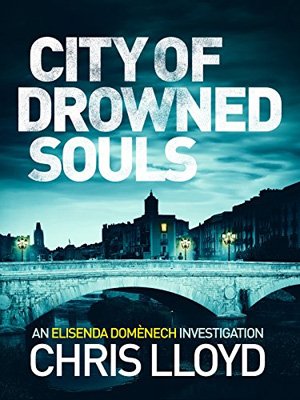
Susanna Miravent is a controversial pro-Spain local politician whose son has been kidnapped just before an important election. Police detective Elisenda Domènech is put on the case, although she sees this as a distraction from investigating a series of violent break-ins at remote farmhouses in the area. Their owners are being targeted directly and threatened or even tortured until they give up the contents of their safes or their PIN numbers. Elisenda’s usual informer, however, does not seem to be giving them the most accurate information. Meanwhile, her bosses are speculating that she is a little overwhelmed by the responsibility and her personal issues – the loss of daughter a few years back and, more recently, a team member. So, in addition to handling two separate cases, Elisenda also has to see a psychologist every morning.
The kidnapping case moves to the forefront as the Mossos – Catalonia’s newly-devolved police force – realise this could be politically motivated. The mother is the obvious target, but the child’s father is also on the planning committee at the local council, and there are suspicions that he has been open to bribery on occasion. Could the child abduction be a form of revenge? Elisenda and her team are baffled by the parents’ cold attitude towards the situation, even though this is their second son to disappear suddenly. Needless to say, any kidnapping means the police are working against the clock to try and find the child alive, so there is inbuilt tension from the start.
The strength of the book certainly lies in the local colour, even though at times the explanations can feel a little too detailed. This look at the Catalan heartland offers many comparisons between policework under the Mossos and the way things were done previously under the centralised Spanish regulations.
The author is not Catalan, but has lived in the region for many years and it shows in the local descriptions and nuanced portrayal of the small yet significant differences between city and countryside in the area. This is by no means one large undifferentiated Catalan tourist attraction, although the climax during the historical re-enactment of the siege of Girona will appeal to anyone who savours local customs. There is also a bit of a crash course on Catalan rock music, which should appeal to those who like a soundtrack with their reading.
While there are some similarities with the remote locations in Dolores Redondo’s Baztan trilogy or the picturesque villages of Martin Walker’s Bruno, chef de police series, the style here is rather different. It’s much more gritty and focused on police procedures, with many team discussions of possible links, descriptions of routine work and interviews. The interactions between the team members are realistic and do not detract from the story, while Elisenda herself is a heroine who may have her own problems, but does not become overwhelmed by them. It is a pleasure to follow the investigative process and reasoning, and try to avoid the red herrings. The Opus Dei link which crops up is perhaps a tad superfluous, but it does help to emphasise the prevailing corruption, claustrophobia and nepotism in a small town setting. City of Drowned Souls is at a great price on Kindle, too.
Canelo
Kindle
£1.99
CFL Rating: 4 Stars